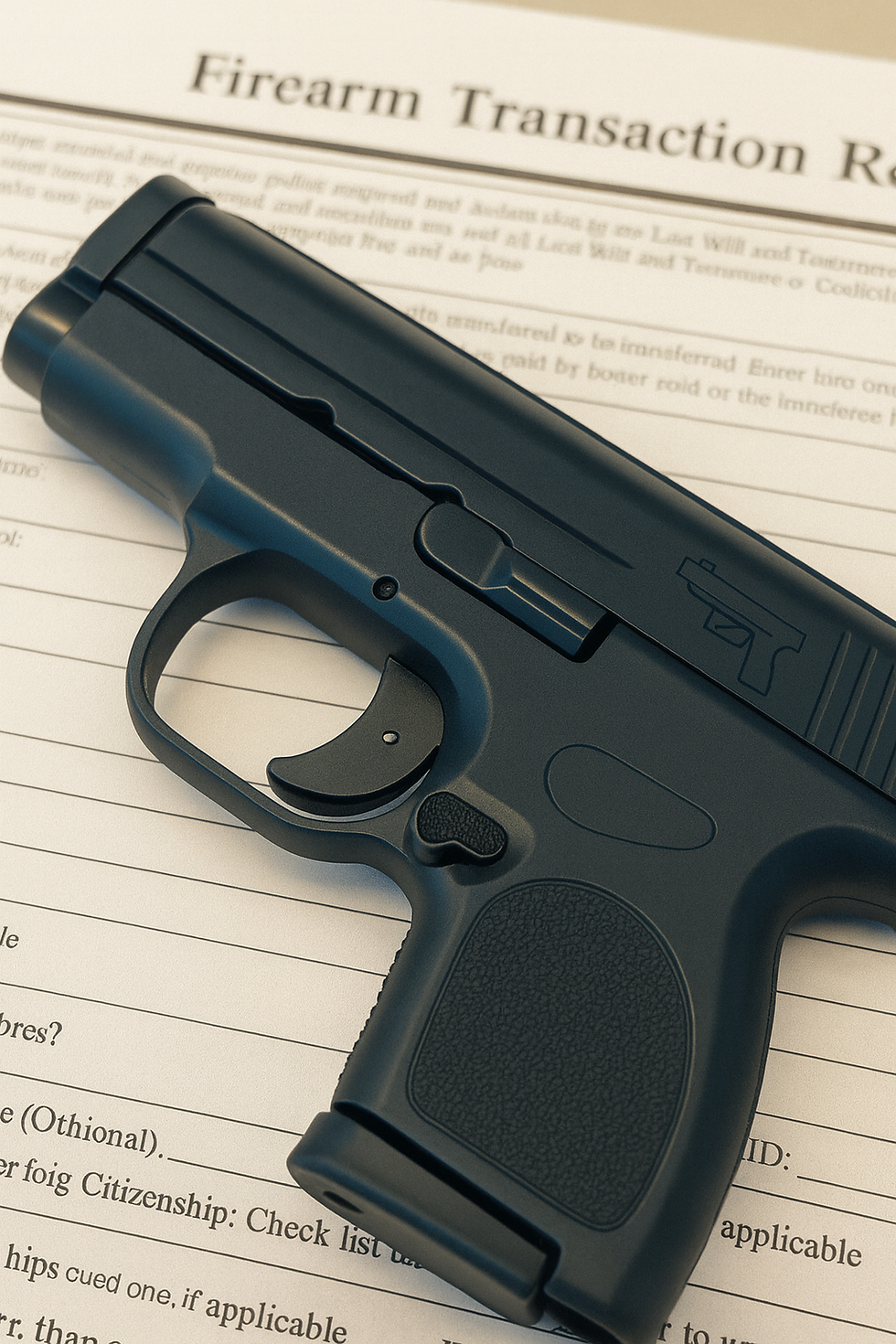Checklist: How to Remove, Appraise, and Sell Firearms During Estate Cleanouts
- Drew McDermott

- Jul 30, 2025
- 3 min read
Updated: Dec 15, 2025
Firearms aren’t like the rest of an estate’s contents. You can’t donate them to Goodwill, list them on Facebook Marketplace, or toss them in a dumpster. Whether you’re a family member, executor, estate buyer, or professional liquidator, you need a plan, and quickly, when guns appear during a cleanout.
This checklist outlines the critical steps to take, what to avoid, and who to call when firearms are discovered in Missouri estates.

“If you found the firearms in a storage unit or abandoned home, read this real-world scenario.”
✅ Step 1: Secure the Firearms
Safety comes before paperwork. Before anything else:
Ensure all guns are unloaded
Store them in a locked cabinet or secure room
Avoid transporting them unless absolutely necessary
Even if they look rusty or antique, they are still firearms. Missouri law treats all guns, regardless of condition, as potentially regulated items. Mishandling could result in liability or criminal charges.
✅ Step 2: Inventory and Document Everything
Make a basic list for your records:
Make, model, and caliber
Serial numbers (if visible)
Accessories (cases, magazines, scopes)
Location found (garage safe, bedroom drawer, etc.)
This information helps determine legal transfer status, fair market value, and supports probate filings. If you plan to distribute items among heirs or sell them, this step builds a defensible paper trail.
Related: Executor’s Dilemma: How to Legally Handle Guns in a Missouri Estate

✅ Step 3: Appraise and Establish Value
Not all firearms are worth keeping. Some are rare collectibles, others are basic utility guns. A qualified appraisal answers two important questions:
Fair Market Value (FMV): What the item would sell for in the open market
Marketable Cash Value (MCV): What a buyer would actually pay you today, accounting for fees and market demand
At MDRF, we offer written appraisals for both, essential for probate, asset division, or insurance.
At MDRF, we offer written appraisals for both, essential for probate, asset division, or insurance. You can learn more about our certified firearm appraisals for estates in Missouri and how we determine defensible value.
✅ Step 4: Choose a Transfer Method
You have several legal options depending on the firearms, the heirs, and your timeline:
Sell to a licensed dealer like MDRF for fast, compliant removal
Consign through a local FFL if you prefer to wait for top-dollar resale
Transfer to a lawful heir (must meet background check requirements)
Surrender non-functional or illegal firearms to law enforcement
“Learn more about what unlicensed individuals can and cannot do in our Firearm FAQs.”
The right choice depends on the estate’s priorities: speed, value, or risk management.
✅ Step 5: Call a Licensed Firearm Dealer (Like Us)
We’ve helped dozens of estate buyers, fiduciaries, and families clean out properties that include firearms. With one call, we can:
Secure firearms onsite with proper documentation
Provide fair appraisals and written valuations
Purchase or legally transfer firearms under ATF compliance
Protect you from liability or legal uncertainty
We operate throughout the Saint Louis region and understand the legal nuances involved in estate firearm handling.
📝 Final Word: Checklists Are Good, Professionals Are Better
Even the most detailed checklist can’t replace experience. If you’ve found firearms during an estate cleanout, don’t guess. Call a federally licensed dealer who knows how to manage the process legally, discreetly, and efficiently.
“We also offer a dedicated page for professionals handling firearms during estate transitions.”
📞 Contact MDRF Enterprises Today
📞 Call us






Comments